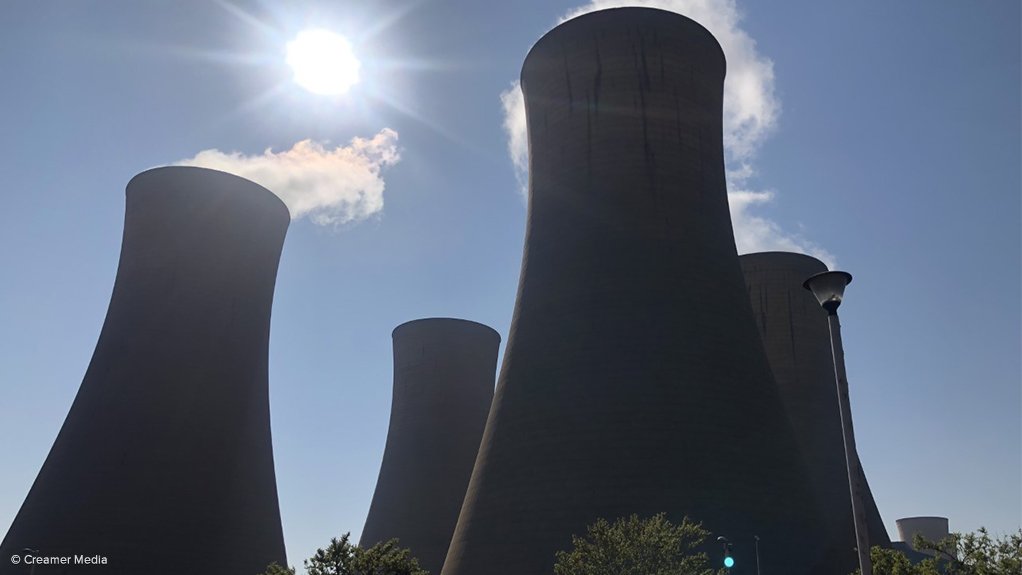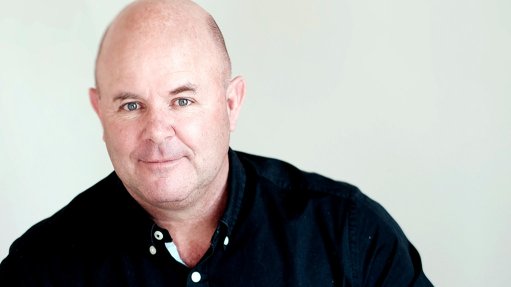Mavuso slams Eskom’s tariff system as ‘farcical’, calls for urgent electricity sector reform
There is no greater sign of the urgent need for reform of the electricity sector than the way State-owned utility Eskom’s electricity tariffs are set, Business Leadership South Africa CEO Busisiwe Mavuso has asserted.
“The whole system is far from the way prices should be set – through a competitive market in which firms aim to sell to consumers by offering them better value than others,” she said in the latest edition of her weekly newsletter, published on September 1.
She noted that the current approach was made clear last week with the revelation that National Energy Regulator of South Africa (Nersa) had agreed to a court order that Eskom could collect an extra R54-billion in tariffs over the next few years.
“That is because of a mistake Nersa made back in January when setting the tariffs Eskom can charge. Eskom was already going to increase prices by almost 13% this year, and now it will be able to increase them by several percentage points more,” Mavuso lamented.
The calculations are based on the multiyear price determination (MYPD) method, which includes several elements in setting tariffs over three years. One of those is the regulatory clearing account (RCA) mechanism, which effectively enables backwards-looking adjustments to tariffs if costs turn out to be higher than Nersa had expected they would be when the original tariffs were determined or if revenue is higher than expected.
“The RCA has the farcical effect of allowing Eskom to charge tomorrow’s customers for yesterday’s costs. Imagine other companies worked like this!” she exclaimed.
She noted that the business sector was in the midst of results season, as large companies reported on their financial performance for the first half of the year. Many of those reporting had shown how hard it had been to grow revenue under difficult economic circumstances.
“Companies have really struggled to increase sales, simply because everyone is under pressure, from consumers to businesses. But despite those gloomy top lines, many companies can tell a positive story about how they have been able to control costs by finding more efficient ways to do things, and thereby ensure their businesses are sustainable,” she noted.
Mavuso asked what might happen if, instead of strong pressure to maintain cost discipline, those companies could simply pass last year’s costs on to next year’s customers by upping the prices they pay.
“Would we be seeing any cost discipline at all? Would companies make difficult decisions about what divisions to close or to cut back on bonuses, or drive more efficient production mechanisms? Of course not.”
“Nersa tries to lean against this risk by determining whether costs were ‘prudently incurred’ by Eskom before allowing recovery. That is nice in theory, but Nersa does not have the detailed operational knowledge to determine what is and isn’t prudent, just like I couldn’t tell you about how much costs any other company could save if it faced genuine competition.
“It is also a political dead end because the costs are already incurred. The only decision is whether they should be paid by the consumer or by the government and, therefore, taxpayers,” she said.
Mavuso noted that the RCA model assumed that consumer demand was price inelastic, which means that no matter the price, consumers would keep on paying. This meant that the recovery of the previous year’s costs was being extracted from the same consumers, in theory.
However, she asserted that this dynamic was changing.
“Even without a competitive electricity market, consumers do have more choices than ever before. They can turn to roof-top solar for example. Large companies can and are building their own electricity plants. So, as Eskom prices go up, consumption of Eskom-produced electricity is going to continue to go down,” she noted.
Mavuso suggested that the only way to fix this “absurdity” was to accelerate the pathway to competitive electricity markets.
“We are on that road already, with licensed electricity traders and private electricity generators able to build plants and supply customers. Eskom’s transmission division is ready to be unbundled into an independent system operator that can buy from the cheapest providers,” she said.
However, Mavuso noted that much of the regulatory detail still needed to be finalised and that the grid infrastructure needed to connect many more producers across the country still needed to be built.
“We should be single-mindedly focused on getting that done. It is the only pathway to rational pricing of electricity and that is critical to enabling our economy to grow,” she said.
MADLANGA COMMISSION OF INQUIRY
Mavuso, meanwhile, also said President Cyril Ramaphosa’s anger over the delays to the start of the Madlanga Commission of Inquiry into the police service and meddling in its investigations was shared by many South Africans.
“The commission should be getting to work this week with a deadline of three months to produce a preliminary report. The focus is on the explosive allegations made by KwaZulu-Natal police commissioner Nhlanhla Mkhwanazi about meddling in investigations of political assassinations in the province.
“The allegations strike at the heart of the police as an independent and trustworthy institution that serves the interests of justice. It is critical for the confidence of all South Africans that the allegations are properly investigated and we get proper insight,” she said.
So far, the delays have led to two senior members of the Department of Justice, including director general Doc Mashabane, being sent notice of their potential suspension.
“It is good to see swift action being ordered by [Ramaphosa]. It is the kind of accountability we want to see much more of across government. When civil servants don’t deliver, they must face the consequences.
“Of course, suspensions must be swiftly followed by disciplinary actions including dismissal, but it is a start,” she said.
Mavuso has previously noted many other suspensions in other parts of government over the past few months.
“It is starting to become a trend. If this age of accountability takes hold, it will start to shift the deep malaise that undermines public sector delivery. [Ramaphosa]’s actions should be praised, both for decisively acting to get the Madlanga Commission on its feet and for furthering a culture of accountability,” she said.
Article Enquiry
Email Article
Save Article
Feedback
To advertise email advertising@creamermedia.co.za or click here
Press Office
Announcements
What's On
Subscribe to improve your user experience...
Option 1 (equivalent of R125 a month):
Receive a weekly copy of Creamer Media's Engineering News & Mining Weekly magazine
(print copy for those in South Africa and e-magazine for those outside of South Africa)
Receive daily email newsletters
Access to full search results
Access archive of magazine back copies
Access to Projects in Progress
Access to ONE Research Report of your choice in PDF format
Option 2 (equivalent of R375 a month):
All benefits from Option 1
PLUS
Access to Creamer Media's Research Channel Africa for ALL Research Reports, in PDF format, on various industrial and mining sectors
including Electricity; Water; Energy Transition; Hydrogen; Roads, Rail and Ports; Coal; Gold; Platinum; Battery Metals; etc.
Already a subscriber?
Forgotten your password?
Receive weekly copy of Creamer Media's Engineering News & Mining Weekly magazine (print copy for those in South Africa and e-magazine for those outside of South Africa)
➕
Recieve daily email newsletters
➕
Access to full search results
➕
Access archive of magazine back copies
➕
Access to Projects in Progress
➕
Access to ONE Research Report of your choice in PDF format
RESEARCH CHANNEL AFRICA
R4500 (equivalent of R375 a month)
SUBSCRIBEAll benefits from Option 1
➕
Access to Creamer Media's Research Channel Africa for ALL Research Reports on various industrial and mining sectors, in PDF format, including on:
Electricity
➕
Water
➕
Energy Transition
➕
Hydrogen
➕
Roads, Rail and Ports
➕
Coal
➕
Gold
➕
Platinum
➕
Battery Metals
➕
etc.
Receive all benefits from Option 1 or Option 2 delivered to numerous people at your company
➕
Multiple User names and Passwords for simultaneous log-ins
➕
Intranet integration access to all in your organisation





















